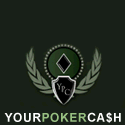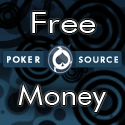If you missed High Stakes Poker Season 5, Episode 5, you can watch the full episode below;
Returning players are some of the world’s best, including Doyle Brunson, Eli Elezra, Daniel Negreanu, Phil Laak and Antonio Esfandiari. They will be challenged by well known, but new to HIGH STAKES POKER players: Tom Dwan, Joe Hachem, Howard Lederer, Alan Meltzer, Peter Eastgate, Dario Minieri, David Peat, Ilari Sahamies and Sam Simon. Former New York gossip columnist turned author and television personality A.J. Benza will host with popular poker analyst Gabe Kaplan. Henry Orenstein of HSPR, L.L.C. and Mori Eskandani of Poker Productions serve as executive producers. The fifth season of HIGH STAKES POKER is filmed at the Golden Nugget Hotel and Casino in Las Vegas, NV.
Past Episodes Below:
High Stakes Poker Season 5, Episode 4 - Watch The Full Episode
High Stakes Poker Season 5, Episode 3 - Watch The Full Episode
High Stakes Poker Season 5, Episode 2 - Watch The Full Episode
High Stakes Poker Season 5, Episode 1 - Watch The Full Episode
27% Rakeback at Full Tilt Poker
Free $100 Bankroll at Full Tilt Poker
Returning players are some of the world’s best, including Doyle Brunson, Eli Elezra, Daniel Negreanu, Phil Laak and Antonio Esfandiari. They will be challenged by well known, but new to HIGH STAKES POKER players: Tom Dwan, Joe Hachem, Howard Lederer, Alan Meltzer, Peter Eastgate, Dario Minieri, David Peat, Ilari Sahamies and Sam Simon. Former New York gossip columnist turned author and television personality A.J. Benza will host with popular poker analyst Gabe Kaplan. Henry Orenstein of HSPR, L.L.C. and Mori Eskandani of Poker Productions serve as executive producers. The fifth season of HIGH STAKES POKER is filmed at the Golden Nugget Hotel and Casino in Las Vegas, NV.
Past Episodes Below:
High Stakes Poker Season 5, Episode 4 - Watch The Full Episode
High Stakes Poker Season 5, Episode 3 - Watch The Full Episode
High Stakes Poker Season 5, Episode 2 - Watch The Full Episode
High Stakes Poker Season 5, Episode 1 - Watch The Full Episode
27% Rakeback at Full Tilt Poker
Free $100 Bankroll at Full Tilt Poker

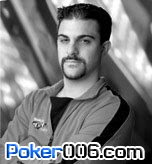 In last week's tip, I shared some strategies for playing short-handed no-limit cash games. This week, I'm following up with some more short-handed advice, this time concentrating on Limit Hold ‘em.
In last week's tip, I shared some strategies for playing short-handed no-limit cash games. This week, I'm following up with some more short-handed advice, this time concentrating on Limit Hold ‘em.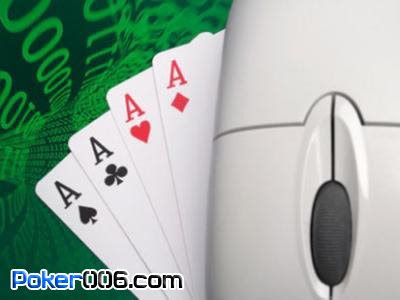
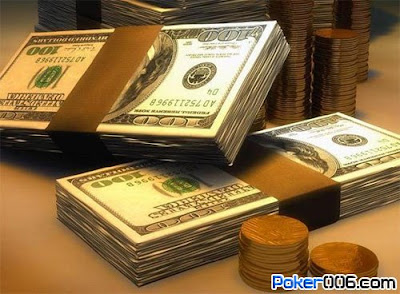

 This past summer, I had the good fortune to cover the World Series of Poker for Full Tilt Poker. For six weeks, I watched world-class players ply their trade and, in that time, I learned a ton about poker. What follows are three lessons I learned from watching Full Tilt Poker's pros during their long days of play.
This past summer, I had the good fortune to cover the World Series of Poker for Full Tilt Poker. For six weeks, I watched world-class players ply their trade and, in that time, I learned a ton about poker. What follows are three lessons I learned from watching Full Tilt Poker's pros during their long days of play.
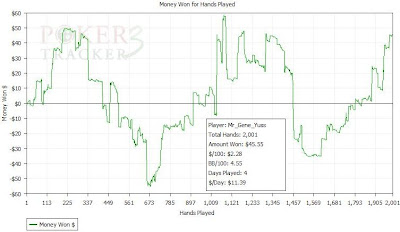

 You are in the big blind with Ts-8s against a player who smooth-called pre-flop. The flop comes K-X-X with two spades. What do you do?
You are in the big blind with Ts-8s against a player who smooth-called pre-flop. The flop comes K-X-X with two spades. What do you do?
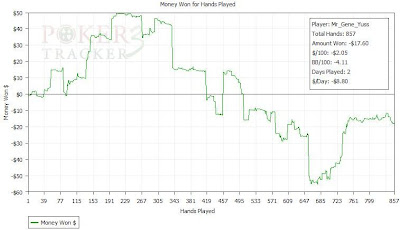
 In the premier episode of our new show, "FullTiltPoker.Net Presents Learn from the Pros" broadcast on FOX Sports Net, five of our pros engaged in a roundtable discussion about stepping up in limits.
In the premier episode of our new show, "FullTiltPoker.Net Presents Learn from the Pros" broadcast on FOX Sports Net, five of our pros engaged in a roundtable discussion about stepping up in limits.


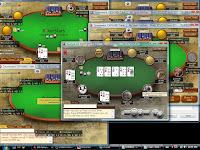
 When I'm thinking about my actions after the flop or turn, I look to the "texture" of the board - i.e., what cards are in play, and how might they interact with my opponent's likely starting hands - to help determine if and how much I will bet.
When I'm thinking about my actions after the flop or turn, I look to the "texture" of the board - i.e., what cards are in play, and how might they interact with my opponent's likely starting hands - to help determine if and how much I will bet.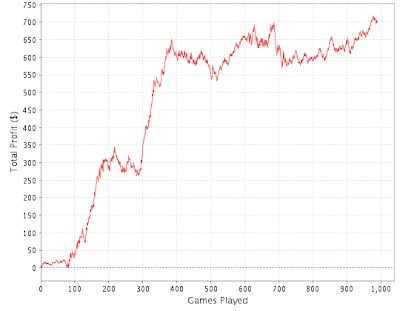
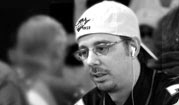 I was at my first World Series of Poker* in 2002, talking to a player who had made the final table the year before. He told me something I've never forgotten, and it's helped me ever since.
I was at my first World Series of Poker* in 2002, talking to a player who had made the final table the year before. He told me something I've never forgotten, and it's helped me ever since.



 While playing on Full Tilt Poker, I have said that there are three topics I won't discuss in table chat; politics, religion, and whether online poker is rigged. That's because many people's opinions on those topics are hardened and not amenable to friendly or productive discussion.
While playing on Full Tilt Poker, I have said that there are three topics I won't discuss in table chat; politics, religion, and whether online poker is rigged. That's because many people's opinions on those topics are hardened and not amenable to friendly or productive discussion. Tom "Durrrr" Dwan 15 (45%)
Tom "Durrrr" Dwan 15 (45%)















